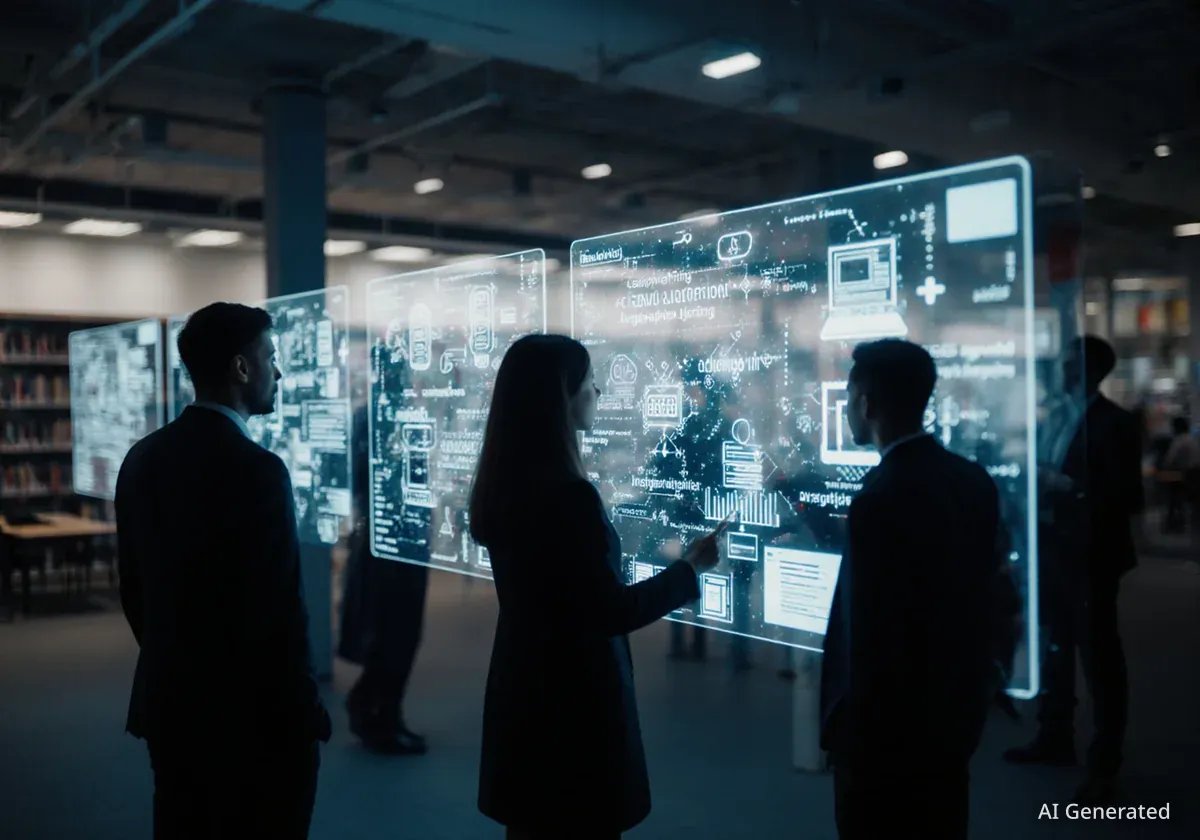Nvidia, a leading chip manufacturer, is hosting its first-ever developers conference in Washington D.C. this week. The event signals the growing importance of the nation's capital for the company's strategic goals. This new conference highlights Nvidia's increasing engagement with the federal government regarding artificial intelligence development.
Key Takeaways
- Nvidia's GTC conference is making its D.C. debut, emphasizing federal ties.
- CEO Jensen Huang states AI is the most transformative technology in history.
- The conference features over 70 sessions on AI, chips, and quantum computing.
- Nvidia and TSMC have completed the first U.S.-made Blackwell chip wafer.
- Discussions include AI's impact on the workforce, a key concern for policymakers.
AI Takes Center Stage in the Capital
The annual Nvidia GTC, typically held in San Jose, is often referred to as the "Super Bowl of AI." Its move to Washington D.C. underscores a significant shift. The conference runs from today through Wednesday at the Walter E. Washington Convention Center.
Attendees can expect live demonstrations and more than 70 sessions. These sessions cover critical areas such as chip design, superintelligence, and quantum computing. The focus is clearly on the advancements and future of artificial intelligence.
Fast Fact
Nvidia CEO Jensen Huang believes that AI represents the most transformative technology in human history. This perspective drives the company's strategic initiatives and its push for innovation in the sector.
Deepening Ties with the Federal Government
The decision to host the conference in D.C. reflects Nvidia's efforts to strengthen its relationship with the U.S. government. This move comes as AI technology becomes increasingly central to national security and economic competitiveness.
Nvidia Vice President of External Affairs, Ned Finkle, emphasized the importance of this collaboration. He stated, "To strengthen America's global leadership in AI, we must invest in our people." This highlights a shared vision between the tech giant and policymakers.
Context on AI and Government
The federal government is increasingly focused on artificial intelligence. This includes both fostering innovation and addressing potential challenges. Topics like job displacement due to AI automation are a major concern for politicians, who represent constituents worried about their livelihoods.
U.S.-Made Chips Mark a Milestone
In a significant development, Nvidia and TSMC recently announced the completion of their first U.S.-made wafer. This wafer will eventually produce Blackwell chips, specifically designed for AI applications. This milestone was first revealed by Nvidia.
This achievement represents a concrete outcome of efforts to boost domestic AI technology production. The goal is to enhance U.S. leadership in the global race for artificial intelligence supremacy. The Trump administration initially pushed for building more AI technology within the United States.
"AI is the most transformative technology in human history — and the race is on," said Jensen Huang, Nvidia founder and CEO, setting the tone for the D.C. conference.
The Blackwell Chip and Future of AI
The Blackwell chip architecture is designed to power the next generation of AI applications. Its production in the U.S. is a strategic move to secure supply chains and maintain a technological edge. These chips are crucial for processing the massive datasets required for advanced AI models.
Manufacturing these advanced components domestically reduces reliance on overseas production. This also supports national economic and security interests. The collaboration between Nvidia and TSMC demonstrates a commitment to U.S.-based semiconductor manufacturing.
Workforce Impact and Policy Discussions
A central theme at the D.C. conference will be the impact of AI on the workforce. This is a top priority for politicians in Washington. Concerns about job displacement are widespread among their constituents.
Policymakers are looking for strategies to manage this transition. Discussions will likely cover retraining programs, educational initiatives, and new regulatory frameworks. The aim is to harness AI's benefits while mitigating its potential negative effects on employment.
- Economic Growth: AI is expected to drive significant economic growth across various sectors.
- Job Creation: While some jobs may be automated, new roles requiring AI-related skills are emerging.
- Ethical Considerations: The development of AI also raises important ethical questions about fairness and bias.
The conference provides a platform for industry leaders, government officials, and academics to discuss these complex issues. It aims to foster collaboration and develop solutions for a future increasingly shaped by artificial intelligence.





